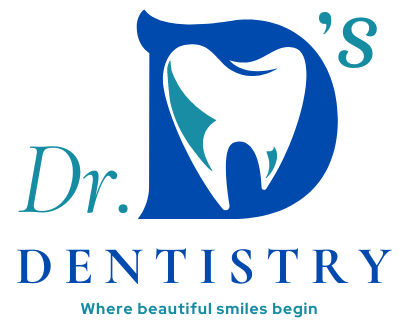Cavities, also known as dental caries, are one of the most common oral health issues, but with the right strategies, you can prevent or stop c before they do serious damage to your teeth. Here are the best practices to follow to save a tooth and stop cavities in their tracks.
1. Brush Properly Twice a Day to Stop Cavities
- Why it works: Brushing removes plaque, a sticky film of bacteria that can turn sugars into acids, which erode enamel and cause cavities to Stop Cavities.
- Best practice: Use a soft-bristled toothbrush and fluoride toothpaste. Brush for at least two minutes, covering all tooth surfaces. Ensure you angle the brush at 45 degrees to the gumline to clean effectively.
2. Use Fluoride Toothpaste and Treatments
- Why it works: Fluoride strengthens tooth enamel, making it more resistant to acid attacks from plaque and sugars in the mouth to Stop Cavities.
- Best practice: Use fluoride toothpaste, and ask your dentist about professional fluoride treatments or rinses, especially if you’re prone to cavities.
3. Floss Daily
- Why it works: Flossing removes plaque and food particles from between your teeth and under the gumline—areas your toothbrush can’t reach to Stop Cavities.
- Best practice: Floss once a day, ideally before bed. Use gentle, up-and-down motions, and curve the floss around each tooth to ensure thorough cleaning.
4. Maintain a Healthy, Low-Sugar Diet
- Why it works: Sugar feeds the bacteria in plaque, causing them to produce the acids that lead to stop cavities.
- Best practice: Limit sugary snacks and drinks, especially between meals. Opt for tooth-friendly foods like fruits, vegetables, and dairy products, which promote saliva production and help neutralize acids.
5. Rinse with Antibacterial Mouthwash
- Why it works: Antibacterial mouthwash kills the bacteria that cause plaque and stop cavities, reducing the risk of decay.
- Best practice: Use an alcohol-free, antibacterial mouthwash daily, particularly after meals if you can’t brush. This will help flush out food particles and bacteria.
6. Chew Sugar-Free Gum After Meals
- Why it works: Chewing gum stimulates saliva production, which helps wash away food and neutralize acid in the mouth.
- Best practice: Choose sugar-free gum, especially those with xylitol, which can inhibit the growth of cavity-causing bacteria.
7. Drink Water Throughout the Day
- Why it works: Water helps rinse away food particles and bacteria. Fluoridated water also provides a source of fluoride to strengthen enamel to Stop Cavities..
- Best practice: Drink water after meals and snacks, and make it your go-to drink throughout the day to keep your mouth clean and hydrated.
8. Address Dry Mouth (Xerostomia)
- Why it works: Saliva protects your teeth by neutralizing acids and helping to repair early tooth decay to Stop Cavities.
- Best practice: If you have dry mouth, drink plenty of water, chew sugar-free gum, and use saliva substitutes or mouthwashes designed to combat dry mouth. Avoid caffeine, alcohol, and tobacco, which can worsen dryness.
9. Use Dental Sealants
- Why it works: Sealants provide a protective coating over the grooves of your molars, preventing food and bacteria from getting trapped and causing decay to Stop Cavities..
- Best practice: Ask your dentist about sealants, especially for your back teeth (molars), which are more prone to cavities due to their deep grooves.
10. Regular Dental Checkups and Cleanings
- Why it works: Regular checkups allow your dentist to catch early signs of decay, and professional cleanings remove tartar that you can’t remove with brushing alone to Stop Cavities..
- Best practice: Visit your dentist at least twice a year for exams and cleanings. Early detection and intervention can prevent cavities from worsening and save your tooth.
11. Consider Remineralizing Treatments
- Why it works: Early-stage cavities can sometimes be reversed by remineralizing the enamel.
- Best practice: Ask your dentist about remineralizing gels, toothpaste with high fluoride content, or calcium phosphate products to help restore weakened enamel before a cavity fully forms.
12. Avoid Frequent Snacking
- Why it works: Constant snacking exposes your teeth to sugars and acids more frequently, giving bacteria more opportunities to cause decay to Stop Cavities..
- Best practice: Stick to regular meals and avoid frequent snacking. If you do snack, choose healthy, low-sugar options like nuts, cheese, or vegetables.
13. Don’t Ignore Tooth Sensitivity
- Why it works: Sensitivity to hot, cold, or sweet foods can be an early sign of a cavity.
- Best practice: If you notice tooth sensitivity, consult your dentist. Treating the problem early can prevent the need for more invasive procedures like fillings or root canals.
14. Consider Dental Fillings Early
- Why it works: Once a cavity forms, it can only be treated with a dental filling. Ignoring it allows the decay to progress deeper into the tooth to Stop Cavities..
- Best practice: If you do get a cavity, treat it as soon as possible to prevent further damage. Modern fillings can blend seamlessly with your natural tooth color and restore the tooth’s function.
15. Avoid Acidic Drinks and Foods
- Why it works: Acidic foods and drinks, like sodas and citrus, can erode enamel and lead to stop cavities.
- Best practice: Limit acidic foods and beverages, and if you consume them, rinse your mouth with water afterward. Wait at least 30 minutes before brushing to avoid damaging softened enamel.
16. Manage Stress to Prevent Teeth Grinding
- Why it works: Teeth grinding (bruxism) can wear down enamel, making your teeth more susceptible to stop cavities.
- Best practice: If you grind your teeth, especially at night, ask your dentist about a custom night guard to protect your teeth. Managing stress through relaxation techniques or exercise can also help reduce grinding.
Stopping cavities in their tracks requires a combination of good oral hygiene practices, regular dental care, and lifestyle adjustments. By brushing, flossing, using fluoride, and maintaining a healthy diet, you can protect your teeth from decay and avoid costly treatments down the line. Taking a proactive approach to your oral health today will help you preserve your teeth and keep your smile bright for years to come.

17. Avoid Tobacco Products
- Why it works: Tobacco use, whether smoking or chewing, can weaken your gums and reduce the ability of your mouth to fight off infections, including cavities. Tobacco also dries out your mouth, reducing saliva, which helps prevent decay.
- Best practice: Quitting smoking or chewing tobacco can drastically improve your oral health and reduce the risk of cavities, gum disease, and oral cancer. If quitting is challenging, seek help from your healthcare provider or use cessation aids like nicotine patches or gum.
18. Monitor Your Children’s Oral Health
- Why it works: Children are particularly susceptible to Stop Cavities, especially as their teeth are still developing. Milk teeth (baby teeth) are just as prone to decay as adult teeth, and cavities in baby teeth can lead to infections that affect permanent teeth.
- Best practice: Teach children good oral hygiene from an early age, ensuring they brush and floss regularly. Limit sugary snacks and drinks, and bring them to the dentist for checkups and cleanings. Consider sealants for their molars as an extra layer of protection against decay.
19. Stay Hydrated to Maintain Saliva Flow
- Why it works: Saliva is your mouth’s natural defense against tooth decay. It helps wash away food particles and neutralizes acids produced by bacteria.
- Best practice: Drink water consistently throughout the day to stay hydrated and support saliva production. If you take medications that cause dry mouth, talk to your dentist about ways to manage the condition and keep your mouth moist.
20. Be Aware of Acid Reflux
- Why it works: Acid reflux, also known as GERD (Gastroesophageal Reflux Disease), can bring stomach acids into the mouth, which erodes enamel and increases the risk of cavities.
- Best practice: If you suffer from acid reflux, work with your doctor to manage the condition. Avoid foods that trigger reflux, and rinse your mouth with water after episodes to neutralize the acid. Consider using toothpaste designed for acid erosion.
21. Use a Soft-Bristled Toothbrush
- Why it works: Hard-bristled toothbrushes can wear down enamel and irritate your gums, especially if you brush too aggressively. This can create openings for cavities to form, especially near the gumline.
- Best practice: Use a soft-bristled toothbrush to protect your enamel. Make sure to replace your toothbrush every three months or sooner if the bristles become frayed. Electric toothbrushes are also effective at cleaning without applying too much pressure.
22. Monitor and Limit Alcohol Consumption
- Why it works: Alcohol can dry out your mouth, reducing saliva and creating a more favorable environment for bacteria that cause cavities. Many alcoholic drinks are also high in sugar, further increasing the risk of tooth decay.
- Best practice: Limit your alcohol intake and drink water between alcoholic beverages to stay hydrated and rinse away sugars. If you consume alcohol, be mindful of sugary mixers, and make oral hygiene a priority afterward.
23. Choose Snacks Wisely
- Why it works: Sticky or starchy snacks like candy, chips, and crackers can linger on teeth longer than other foods, providing more opportunities for bacteria to produce acids that lead to cavities.
- Best practice: Opt for snacks that are less likely to stick to your teeth, like raw vegetables, cheese, or yogurt. If you do indulge in sugary or starchy treats, rinse your mouth with water afterward and brush your teeth when you can.
24. Incorporate Calcium-Rich Foods
- Why it works: Calcium helps strengthen your teeth and bones, and it’s essential for maintaining healthy enamel.
- Best practice: Eat calcium-rich foods like dairy products (milk, cheese, yogurt), leafy greens, almonds, and fortified plant-based milks. If you’re concerned about your calcium intake, talk to your healthcare provider about supplements.
25. Be Cautious with Whitening Products
- Why it works: Overuse of whitening strips or gels can weaken your enamel, making your teeth more susceptible to cavities.
- Best practice: If you want to whiten your teeth, do so under the guidance of your dentist. Use products sparingly and follow the recommended guidelines to avoid enamel damage.
26. Protect Your Teeth During Sports
- Why it works: Trauma to your teeth during contact sports can cause chips, cracks, or fractures that expose the inner layers of your teeth, making them more vulnerable to cavities.
- Best practice: Wear a mouthguard if you participate in sports like football, basketball, or hockey. Custom-fitted mouthguards from your dentist provide the best protection.
27. Look for Early Warning Signs of Cavities
- Why it works: Cavities often start small and progress over time. If you can catch early signs like white spots, sensitivity, or discoloration, you can address them before they require more invasive treatment.
- Best practice: Be vigilant about any changes in your teeth, and don’t ignore symptoms like pain or sensitivity. Visit your dentist at the first sign of a potential issue so they can take action before the cavity worsens.
28. Educate Yourself About Risk Factors
- Why it works: Certain people are more prone to cavities due to genetics, medical conditions, or lifestyle factors. Knowing your risk can help you take extra precautions.
- Best practice: Talk to your dentist about your specific risk factors for cavities. Whether it’s a family history of tooth decay, medications that cause dry mouth, or dietary habits, your dentist can help you create a personalized plan to prevent cavities.
29. Be Proactive With Baby Teeth
- Why it works: Many parents believe that cavities in baby teeth aren’t as serious because these teeth will eventually fall out. However, untreated cavities in baby teeth can cause pain, infections, and problems with the alignment of permanent teeth.
- Best practice: Take your child to the dentist for regular checkups, starting by their first birthday. Encourage good brushing habits early on, and make sure they get enough fluoride to protect their developing teeth.
Conclusion:
Saving a tooth and preventing cavities is a combination of consistent oral care, making smart lifestyle choices, and paying attention to early signs of decay. By brushing, flossing, and using fluoride regularly, along with watching your diet and staying hydrated, you can protect your teeth from cavities and enjoy long-term oral health. If you spot a potential problem, acting quickly and seeking professional care will help you stop the cavity in its tracks and preserve your smile for years to come.


